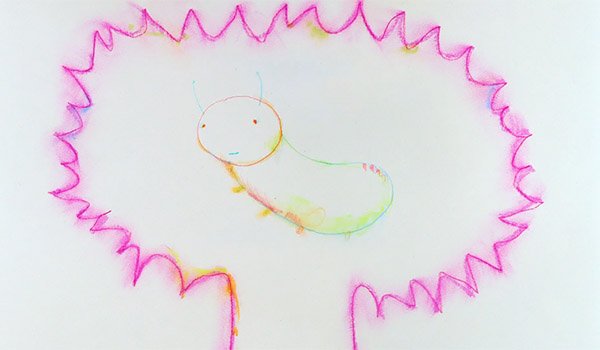Transfiguration International Film Festival Review “Historical Remnants”: Dreams of Fragments & Memories in Block 2
Editor-in-Chief Venesya Mayvelie Kosasi reviews the second block of this year’s Transfiguration International Film Festival and recounts how the selection of films explore history and memory in fragments that ultimately foreground the personal narratives of the marginalised.
If history is written by its victors, as they so often say, then what’s left for the rest of us?
As a process of constructing and reconstructing stories, history transcribes the spoken into writing, immobilising it. Naturally, it contains within itself linguistic and narrative violence when manipulated in the favour of the oppressors. In this manner, the disenfranchised and the marginalized are rendered (literally) marginal, or completely written out of narratives, eradicated entirely. Yet, the effacement of one’s story does not equate to the absence of it. Cultures and traditions have always existed and will continue to stubbornly resist erasure. And more often than not, they survive in the form of the transient and ephemeral. They haunt us from faded photographs, or echo in our oral traditions: superstitions or grandmother’s stories, recounted over cooking, which you’d listened attentively to; her sous-chef in pajamas, missing her front teeth. History continues to exist through the remnants of our ancestors–even if they came to us broken, even if they came to us scattered and in scant quantity–they were painstakingly carried by those who refused to forget.
The second block of this year’s Transfiguration International Film Festival precisely grapples with these themes, and the possibility of rediscovering history within yourself. Aptly titled “Historical Remnants”, the showcase immersed the audience in nine experimental short films, each with its own unique methods in approaching the perennial subjects of memory and history.
In some of the films, like Ancestral Memory (2024) and Remember Them When You Forget (2024), a blur of collected footage and memories act as a depository that bridge the past and present–a document of a country or culture’s story and grief, through first hand accounts or retold in fragments.
In others, such as Confessions of a Cool Girl (2024) and Wan Wan (2025), grief is more private, more particular. In this instance, it is to lament our personal histories, it is to long for simpler times. Do you remember the gentle waft of your grandmother’s cooking as you made a mess of the dining table drawing? Can you recall the childlike freedom to imagine, to make mistakes: who cares if you’ve drawn a pink dog with a green snout? But more than that, these films are about reckoning. They are about understanding that you are an amalgamation of everyone who has ever loved you. You are made of personal, but crucially, interpersonal histories, and you carry these residues of people with you. Personally, while I can no longer recall my great grandmother’s laugh, sometimes I sit on her bench, and I can almost hear her sing to me in her native tongue.
The selection of films in the festival hence foregrounds and recounts the subjective narratives of the marginalized over the spectacular; personal histories. Beyond that, however, there is also an underlying feeling that it is an elegy for memory, and how memory whispers the remnants of a history undisclosed.
And yet, the strange thing about memories is that no matter how many times you revisit them, they are never exactly the same. During the block, watching Confessions of a Cool Girl (2024) and Wan Wan (2025), I couldn’t stop crying, but yet, I couldn’t understand why it was. What history was I longing for? Yet, if anything, memories and feelings are rarely rational. Memory is less fixed than we think, each time we recall them, we write over them with new contexts and emotions. Pain fades and burrows deeper in your heart; mundane memories can transform into an ethereal locket of experiences; something that felt normal years ago could mutate into terror only recognized after a nightmare. Our minds are fragile: things slip from them, even if you try to resist.
Memory is fluid, taking on different forms and feelings. Narrated through a layered series of textures, A Love Letter (2019) turns memory tactile, into surfaces that I seem like can almost reach out and fiddle with. And yet, sometimes memory can also be nebulous, indistinct, and eludes our grasp, erupting so simply and suddenly from a feeling. Other times there is a kaleidoscopic orchestra, as in Infinite Love (2012), accompanied by rousing guitar chords, watery echoes, endless thrumming, strange but hypnotic phrases and beams–a cacophony hard to fully grasp, but effecting and resounding within you all the same.
While I can’t say that I loved every film from the eclectic and creative curation, some of them, indisputably, will cling unto me for a while. I came out of the screening with my mind swimming with thoughts and suffuse with many emotions– I think that speaks of the success of this programme.
As the lights came on, I overheard those seated behind me whispering “you didn’t tell me it would be this sad” to one another. But isn’t that what films are meant to do? Films catch you unguarded, and submerge you relentlessly in oceans of emotion. Do away with your preoccupations on how good the film’s story was, or how technically advanced it was, forget how many stars you deign to give it. All that can wait. Resist the urge to pick up your phone, ignore your dimly lit surroundings. Right now, in this darkened room, let yourself feel and remember.
Images in this article are being used under Fair Use guidelines as part of Singapore's Copyright Act 2021



